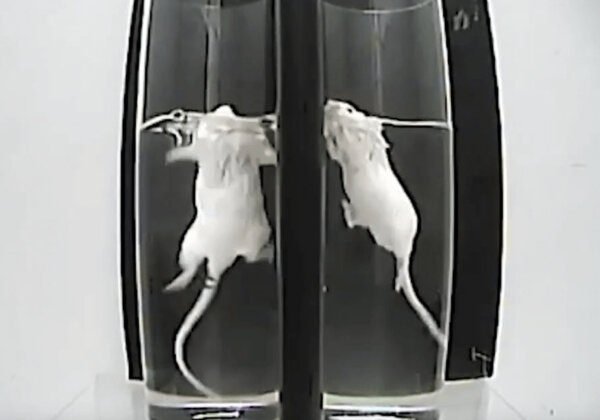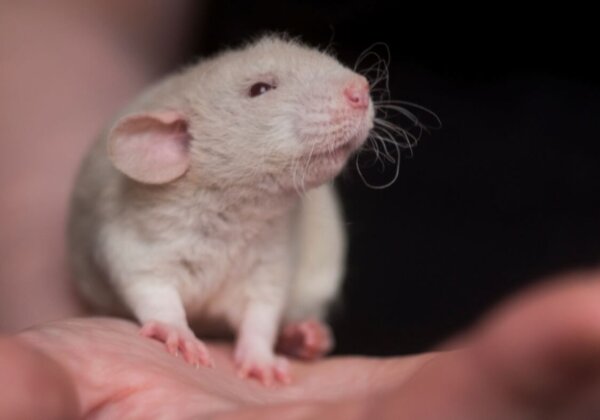‘Guardians of the Galaxy Vol 3’ Exposes the Evils of Animal Testing
As Marvel’s Guardians of the Galaxy Vol 3 tops the box office in Australia, movie-goers are being taken on an emotional rollercoaster that’s exposing the evils of animal testing.
While Guardians character Rocket Raccoon’s heartbreaking origin story might be a work of fiction, it was inspired by the very real torment that animals in laboratories have endured for decades. Here are just a few things that the film exposes about the use of animals in experimentation:
- Animals are given ID numbers, like 89P13, instead of names.
- Their ID numbers are typically tattooed on their chests, like Lylla’s and Rocket’s, or inside their ears.
- Animals are confined to small cages with little or no enrichment. But unlike in the film, in which Rocket and Floor and Lylla and Teefs are housed together, experimenters in the real world cage many species of animals separately.
- As a baby, Rocket is shown strapped into a restraining device while the High Evolutionary and OrgoCorp scientists experiment on him. The device in Guardians of the Galaxy Vol 3 is eerily similar to real-life ones that experimenters use to restrain primates in laboratories.
- Experiments are often driven by curiosity and serve no real purpose.
In the film, Nebula said it best: using animals in experimentation is “worse than anything Thanos ever did”, and it needs to end.
Help Animals Like Rocket
Right now, millions of real mice, rats, rabbits, monkeys, cats, dogs, and other animals are locked inside barren cages in laboratories across the country. They languish in pain, ache with loneliness, and long to be free and safe from animal testing. After enduring a life of agony, isolation, and terror, almost all of them will be killed. But you can help these animals.
- Only buy cruelty-free products. Find vegan and animal test–free brands by searching the PETA US global Beauty Without Bunnies database.
- Join PETA’s Activist Network. We’re campaigning to end the forced swim test at universities and pharmaceutical companies. Please sign the action alerts linked in the previous sentence and then join our Activist Network to stay informed about new campaigns.
- Donate to humane charities. Unfortunately, many health charities fund animal testing, often without making that fact clear to members of the public. If you’re considering making a donation, first enquire to ensure the charity doesn’t conduct or fund animal experiments.
- Share your newfound knowledge. Let others know about what happens to animals used for experimentation and how they, too, can help!








